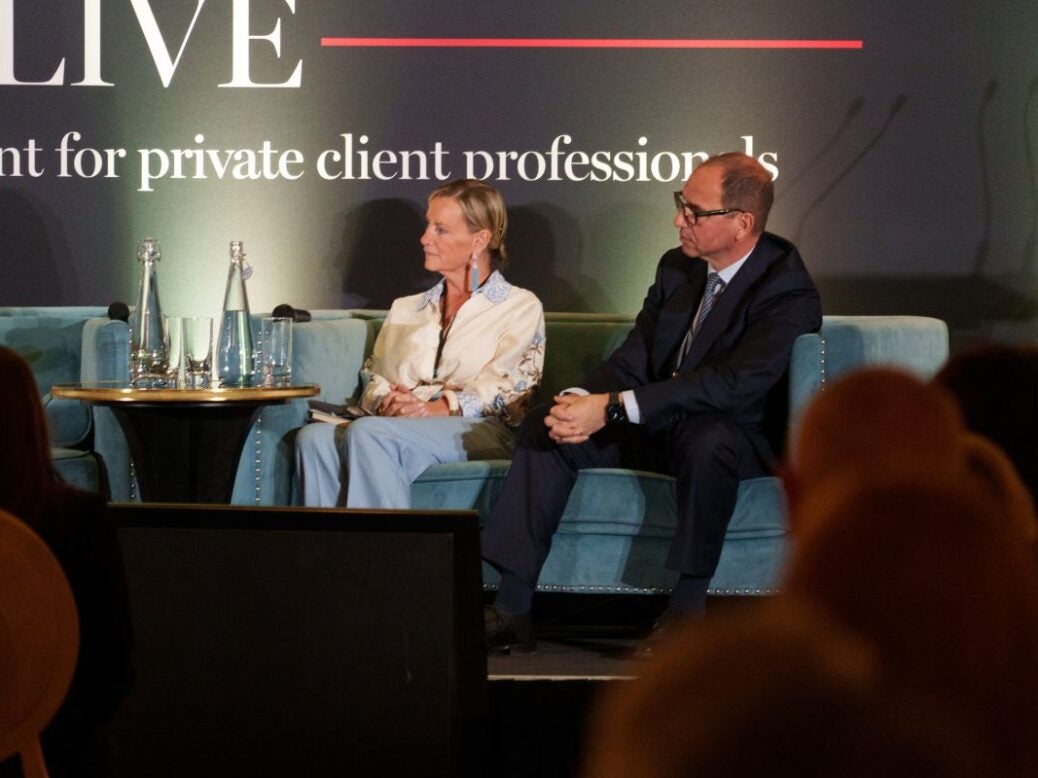
Extending one’s life is not the holy grail of medical care, despite the boom in longevity treatments among HNWs.
That was the view of Harley Street experts and the CEO of a Mayfair longevity clinic, who addressed the audience at Spear’s 500 Live during a session entitled ‘Taking control of your health: Techniques, screening and treatments to optimise wellbeing for individuals and families’, which was presented in association with HCA Healthcare UK.
Kate Woolhouse, CEO of Mayfair health clinic Hooke, made a clear distinction between ‘lifespan’ and ‘healthspan’, the latter being the period a person lives with mobility, good cognitive function and without serious illness. Woolhouse and her fellow panellists agreed that bespoke screening was among the best tools to extend one’s healthspan. ‘We’re trying to gather the data so that we can personalise our interventions and so that the majority of people can live as much of their life as possible in good health, free of disease and as productively as possible,’ said Woolhouse.
[See also: The best preventative medicine, health screening and anti-ageing professionals]
Annabelle Neame, the founder of HCA UK’s medical concierge service, spoke from personal experience to emphasise how regular screenings can be overlooked by time-poor professionals. ‘I felt fit and healthy at my routine screening, and it came back with the diagnosis of an aneurysm in my aortic valve,’ she said. ‘That never would have been picked up had I not gone.’
In the UK, health screening under the NHS is designed to ‘improve the health of the nation and reduce the incidence of certain diseases at the lowest cost,’ said Dr Paul Glynne. The NHS often lacks the resources to take the individual history of the patient into account, said Glynne, partner and medical director at The Physician’s Clinic. ‘Family history, ethnicity and lifestyle are all really important.’
[See also: Why a patient-first approach is key in healthcare]
Much of the success of the type of bespoke screening that is available to private patients comes as a result of physicians’ ability to gather longitudinal data, collected and compared at regular intervals. ‘I would access, annually, the most detailed and comprehensive blood and imaging that I could,’ Glynne advised. ‘I would do it with somebody who knows my case and is there effectively to look at any potential changes.’
The holistic approach taken by high-tech health clinics such as Hooke places the patient at the centre of care. ‘We start with family history and we start to build a profile of a person,’ Woolhouse told the audience. ‘We identify what their goals and concerns are because that is really important in what’s going to be the motivating factor that gets them to make positive changes.’
Neame emphasised that clinics must ‘start with having a relationship [with patients] and then they can get to the true story.’ Woolhouse agreed: ‘We are building a relationship of trust with somebody.’
[See also: The £54,000-a-year health clinics helping the super-rich live longer]
However, the experts advised caution. Glynne warned that clients should not just have ‘any test done’.
‘It’s important [for physicians] to question what they are asking by arranging tests and if the person who is having the test actually understands what the implications of that test being positive are.’ He gave a hypothetical example of looking for rare cancer genes very early in a person’s life, while not fully knowing if that gene would develop into cancer.
Despite concerns, the growing interest among HNWs in private, bespoke health screening cannot be ignored. High-powered HNWs want to ensure their physical and mental longevity to guarantee a long and prosperous life into their 80s and 90s. Technological innovations are at the forefront of combatting ill-health and reducing stress.
[See also: Are hyperbaric chambers worth the hype?]
Improving or sustaining professional performance tended to be among HNW clients’ chief aims, said Woolhouse. ‘Psychological well-being, stress resilience and cognitive function’ are primary concerns for patients, particularly C-suite executives, Woodhouse said. ‘When you talk to people about their concerns with their long-term well-being, one of the key things that everybody mentions is how well they are doing at work.’
‘I’ve seen higher levels of anxiety [related to health] in pretty much everybody, particularly since COVID,’ noted Dr Glynne, ‘but there are incredible technological innovations on the horizon that, when implemented into bespoke healthcare, could offer [great benefits].’
Watch the full panel session here:
Spear’s 500 Live is the premier live event for private client professionals and leading figures from the private wealth and family office ecosystem. The 2025 edition took place at the Savoy in London and was attended by more than 500 high-calibre delegates.
Spear’s 500 Live was presented in association with our partners, Blacklane, the Charities Aid Foundation, CMB Monaco, HCA Healthcare UK, Henley & Partners, Interpolitan, Invest Barbados, Maddox, Mast Capital, Sentinel Resource Group and Stewardship.
For commercial enquiries concerning Spear’s events, contact shady.elkholy@spearswms.com.







